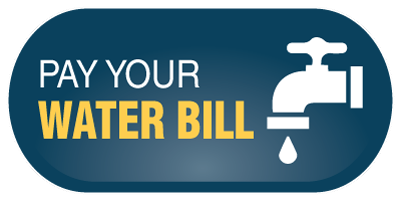Navigating utility responsibilities in rental agreements is essential for landlords and California tenants. Understanding who bears the cost can prevent legal issues and ensure a smooth tenancy.
In California, landlords are not legally obligated to pay their tenants’ utilities. However, the lease agreement should explicitly state who is responsible for utility payments. Landlords must ensure tenants have uninterrupted access to utilities and can only charge them the actual cost of the utilities consumed.
There are specific rules about handling utility payments for tenants, and breaking those rules could lead to significant fines. Don’t risk these avoidable costs, lawsuits, or disagreements with your tenants —take some time to understand utility laws in California.
From water bills to gas bills, it’s up to you as the landlord to ensure both parties in a lease agreement understand who is responsible for covering these costs. Today, learn about the applicable laws and how to set yourself up for success when dealing with utility bills and tenant rights.

A: Under California law, , but they must provide notice of the charges and the method of billing. Landlords must also comply with certain requirements related to the calculation and billing of water charges, including providing accurate and timely bills.
California Landlord
https://rentprep.com/blog/legal/california-landlord-tenant-law-utilities/
A: Under California law, , but they must provide notice of the charges and the method of billing. Landlords must also comply with certain requirements related to the calculation and billing of water charges, including providing accurate and timely bills.
What appliances must a landlord provide in California?
Landlords are not legally required to provide appliances in rental properties in California. Most landlords, however, choose to provide washers, dryers, dishwashers, or refrigerators to attract more tenant applications. These appliances are something that tenants often prioritize when selecting a unit, so it’s a benefit to landlords to provide them.
Can a landlord charge for utilities in California?
In California, whether a tenant is responsible for the water bill depends on the lease agreement. If the lease specifies that tenants cover utility bills, you may legally be required to pay the water bill. However, the landlord cannot decide to make you pay the water bill without it being agreed upon in your lease.
Tenants can negotiate on this point during the lease signing process, but most California landlords prefer this practice.
There are no specific limits on how much can be charged for utilities, but landlords are not permitted to charge a premium. They should charge tenants the exact amount they are paying for the unit’s utilities. They may, however, add a small administration fee for their work and liability in covering these bills directly.
Tenants typically compare rates to comparable units in the area to be sure that landlords are not overcharging them for utilities. They can report this to the appropriate municipality and authorities if they believe they are being overcharged.
Landlords in California can charge tenants for common area electricity and other utilities if this is clearly outlined in the lease agreement. However, any charges must reflect actual usage and cannot exceed the cost incurred by the landlord, ensuring fairness and transparency in utility billing.
Landlords should always ensure they are not charging more than what they pay for utilities.
FAQ
Who pays the water bill, landlord or tenant in California?
Can a landlord charge for water and sewer in CT?
What can’t a landlord do in California?
How much money does a landlord have to give a tenant to move out in California?
Do I have to pay water bills if a tenant doesn’t pay?
If your previous renter had the water and other utility bills in their name and they didn’t pay them before the lease ended, then you may have to cover the water bills for tenants who don’t pay. However, this depends on the state in which your rental property is located.
Can a renter pay a water bill while renting a house?
You can also have your renter paying the water bill while renting the property. Before they move in, they’ll work with the local water department to set up an account and register the unit’s water services in their name. Then, the renter will be responsible for paying the water bill while they live in the apartment or house.
What if my landlord doesn’t pay my utility bill?
If your landlord is responsible for paying for utility service and fails to pay the utility bill or if the landlord instructs the utility company to shut off your service, the Utility Services Tenants Right Act requires that you be notified by the utility company at least 30 days in advance.
Can a landlord charge a tenant for water or sewer?
For landlords of a building with only one or two dwelling units, they can charge tenants directly for water or sewer, but must: provide a copy of the water and/or sewer bill to the tenant. Read the Law: Real Property, § 8-205.1 5. Can a Landlord Charge a Tenant Late Fees for Unpaid Utilities?
You may also like :
